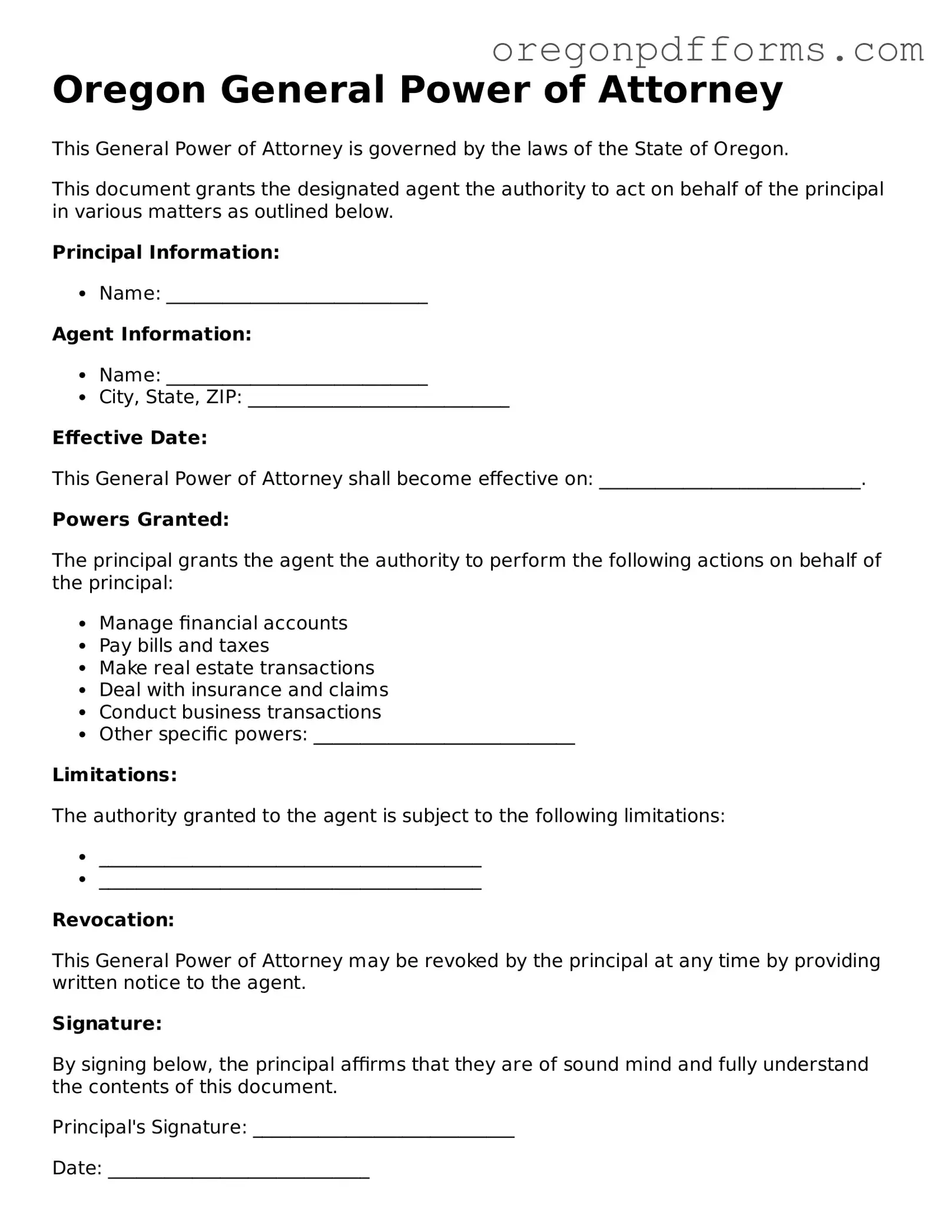What is a General Power of Attorney in Oregon?
A General Power of Attorney (GPOA) in Oregon is a legal document that allows one person, known as the principal, to appoint another person, called the agent or attorney-in-fact, to act on their behalf. This authority can cover a wide range of decisions, including financial matters, legal issues, and property management. It’s important to note that the powers granted can be as broad or as limited as the principal desires.
When should I consider creating a General Power of Attorney?
Creating a General Power of Attorney is beneficial in several situations, such as:
-
If you anticipate being unable to manage your affairs due to health reasons.
-
When you are traveling or living abroad and need someone to handle your financial matters.
-
If you wish to designate someone to make decisions on your behalf in case of incapacity.
By planning ahead, you ensure that your affairs are managed according to your wishes, even when you cannot be present.
What powers can be granted through a General Power of Attorney?
The powers granted in a General Power of Attorney can be extensive. Common authorities include:
-
Managing bank accounts and finances.
-
Buying or selling real estate.
-
Handling tax matters.
-
Making legal decisions and signing contracts.
-
Managing investments and retirement accounts.
However, the principal can customize the document to limit or specify the powers as needed.
Can I revoke or change my General Power of Attorney?
Yes, you can revoke or change your General Power of Attorney at any time, as long as you are mentally competent. To revoke, you should create a written document stating your intention to do so and notify your agent and any relevant institutions. Additionally, if you create a new GPOA, it automatically revokes any prior versions unless stated otherwise.
Do I need a lawyer to create a General Power of Attorney in Oregon?
While it is not required to hire a lawyer to create a General Power of Attorney in Oregon, consulting with one can be beneficial. A lawyer can help ensure that the document meets all legal requirements and reflects your intentions accurately. If your situation is complex or involves significant assets, legal guidance is highly recommended.
Is a General Power of Attorney valid in other states?
A General Power of Attorney created in Oregon is generally valid in other states, but there may be specific requirements or variations in laws that could affect its acceptance. It’s wise to check the laws of the state where you intend to use the document. If you frequently travel or have assets in multiple states, consider consulting with a legal professional to ensure your GPOA is recognized.
What happens if I become incapacitated and do not have a General Power of Attorney?
If you become incapacitated without a General Power of Attorney in place, your loved ones may need to go through a court process to obtain guardianship or conservatorship. This process can be lengthy, costly, and emotionally challenging for your family. To avoid this situation, it is advisable to establish a GPOA while you are still capable of making decisions.

